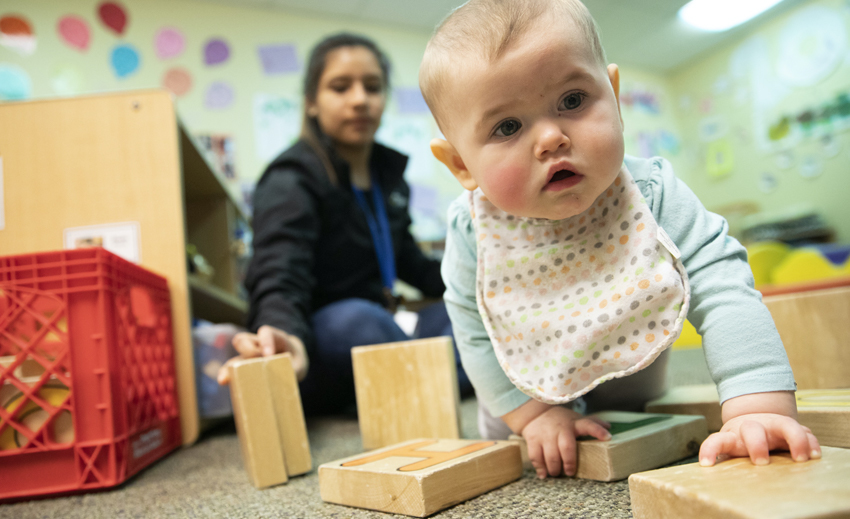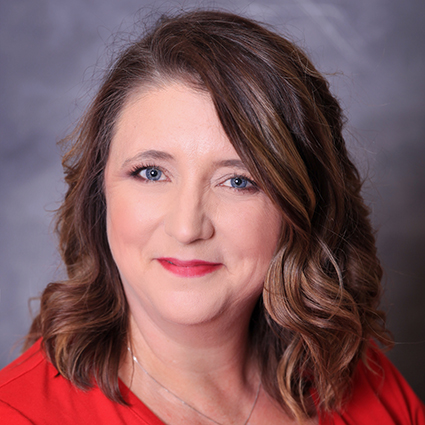 More than half of the 1,000 child care providers who responded to the Buffett Institute's new statewide survey said they will "definitely" or "probably" need financial assistance if the pandemic continues into the fall and winter.
More than half of the 1,000 child care providers who responded to the Buffett Institute's new statewide survey said they will "definitely" or "probably" need financial assistance if the pandemic continues into the fall and winter.By Matthew Hansen, Managing Editor
Steph Allen has already weathered one unimaginable crisis, the nightmare scenario that struck Grand Island and her new Teaching Tree child care center this spring.
She had to close Teaching Tree in late March, and stay closed for eight weeks as the COVID pandemic hit Hall County earlier and harder than almost any other spot in Nebraska. When she reopened in June, her enrollment and revenue plunged by nearly 40 percent. It is only now, in late July, that enrollment is back up and daily operations are starting to feel somewhat normal.
The good news is that both Steph and her new high-quality child care center are still standing.
The bad news is that she can already see another crisis looming on the horizon.
 Steph Allen
Steph Allen“My biggest fear is when school starts back up in Grand Island,” she said this week. “How are parents going to react if schools have to close? Will my staff want to close here? And if it gets to the point that I have to close again, I will absolutely be in big trouble financially unless there’s another round of (COVID relief) funding.
“So, what scares me the most? The months of August through December.”
Nebraska’s child care system is economically staggering four months into COVID-19, according to the Buffett Early Childhood Institute’s new statewide survey of 1,000 licensed child care providers. The next four months could bring further financial blows that many child care providers won’t survive.
Most family child care providers responding to the survey lost at least a quarter of their income this spring and summer, with many absorbing far greater losses. Child care centers in Nebraska are faring even worse—nearly four out of every 10 report that income has been sliced in half this year.
The situation would have looked even more dire if not for federal, state, and local COVID aid. More than a third of Nebraska child care providers surveyed have received federal Personal Protection Program loans. Two-thirds received smaller, $1,000 grants provided by a private donor through the statewide Nebraska Children and Families Foundation and the Omaha-based Nebraska Early Childhood Collaborative. Every provider interviewed for this story portrayed those funds as a lifesaver as they struggled to stay afloat.
But too many child care providers are sinking—and many more might sink soon.
Roughly one of every seven Nebraska child care providers was closed for business in June, according to the Nebraska Department of Health and Human Services. Many will never reopen, and those closures will put further strain on an already strained system—many Nebraska providers already operated on shoestring budgets, and many Nebraska families already struggled to find quality care for their children, long before COVID-19.
The looming crisis: Many more Nebraska child care businesses appear to be barely above water. More than half the providers surveyed said they will “definitely” or “probably” need financial assistance if the pandemic continues into the fall and winter.
Put another way: Half of providers surveyed say they will likely close their doors without financial help.
“I think calling this an economic crisis is accurate,” says Dr. Kathleen Gallagher, director of research and evaluation at the Buffett Early Childhood Institute. “We heard again and again from providers, that if this continues, they don’t think they will make it.”
The past four months have also taken a worrisome toll on the physical and emotional health of Nebraska’s child care providers as they attempt to keep businesses afloat, deal with anxious parents, and care for our state’s youngest residents.
More than three-quarters of providers surveyed report stress-related sleep changes during COVID. More than half say they are having trouble concentrating. Roughly half report that they are sad or depressed some or most of the time.
Read the survey report here
Yet there is also resiliency to be found in the survey results, say Gallagher and Alexandra Daro, a Buffett Institute research specialist and survey co-author. Many providers report using self-care practices like deep breathing, meditation, and walks outside to be able to cope after the workday and get ready for the next one.
“This is so Nebraskan,” Gallagher said. “These people are in pain, and they are still doing their jobs.”
Said Daro: “It is clear that providers care for the families they serve. They want to be there for their families. This is so important to them.
 Rita Kirch
Rita Kirch“But they are also flat-out saying, ‘I am worn out. I am tired. This is taking its toll.’”
Rita Kirch, a longtime child care provider in Oshkosh, said her 24-child licensed child care never closed this spring because cases have stayed low in her western Nebraska county and because many of her parents work in health care. But, even in relatively unscathed Garden County, things have grown tenuous.
Kirch lost half of her children and income this spring and summer before returning to almost full capacity in July. She may have had to shut down her business if she hadn’t received a PPP loan, she says. Kirch thinks her child care will make it, so long as COVID doesn’t hammer Garden County. If the virus does spread in the area, the future darkens both for her and for the area’s already strained child care system.
Most child care providers, like most restaurants, run on a razor-thin profit margin and are especially endangered during the pandemic, Gallagher says. Except child care providers don’t just serve food – though they do, of course, provide meals and snacks. They provide an essential service to working families, one that leaves small children stranded, wrecks parents’ careers, and wounds the local economy when it disappears.
Even if Kirch does weather the COVID crisis, another more normal crisis for small-town Nebraska child care looms in Garden County. She wants to retire soon. And right now, there isn’t anyone else to take her place.
“We need another child care center here, not the opposite,” Kirch says. “As this year has gone on, we have gotten into a better routine and had more structure. We’re sticking together. So that’s good.
“But I don’t think we are ever going to be normal again.”
Watch an Early Years Matter Conversation with Kate Gallagher and Alexandra Daro on this topic.
Matthew Hansen, the managing editor of the Buffett Early Childhood Institute at the University of Nebraska, is an award-winning journalist tasked with telling the stories of the Institute's work and early childhood care and education in Nebraska and beyond.
His columns can be read at https://buffettinstitute.nebraska.edu/news-and-events/early-years-matter.